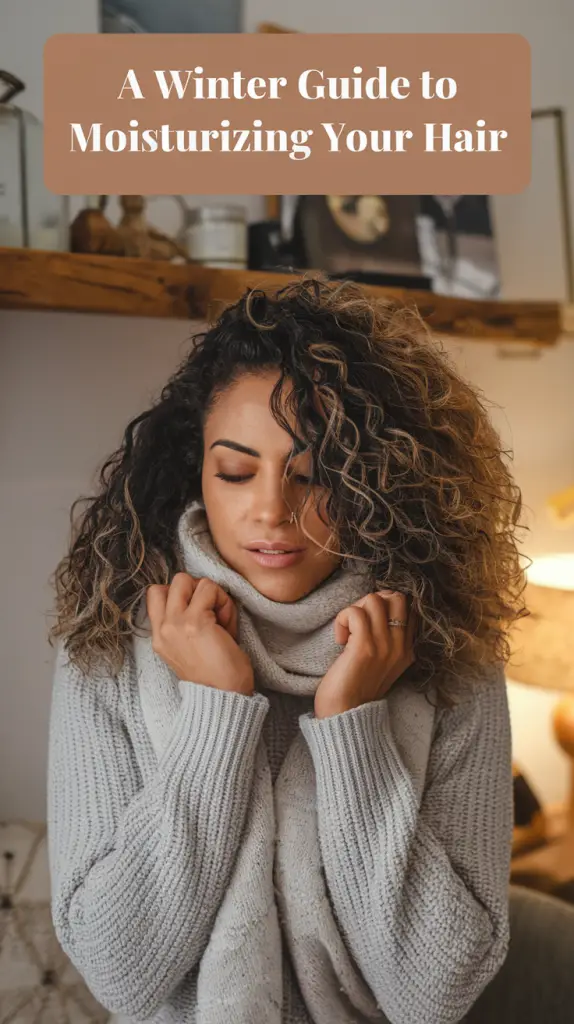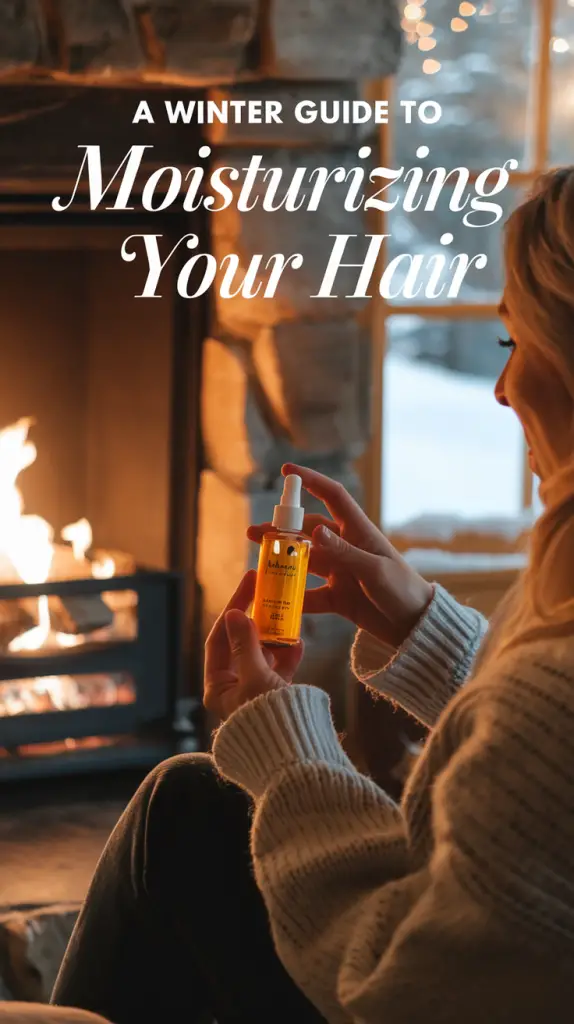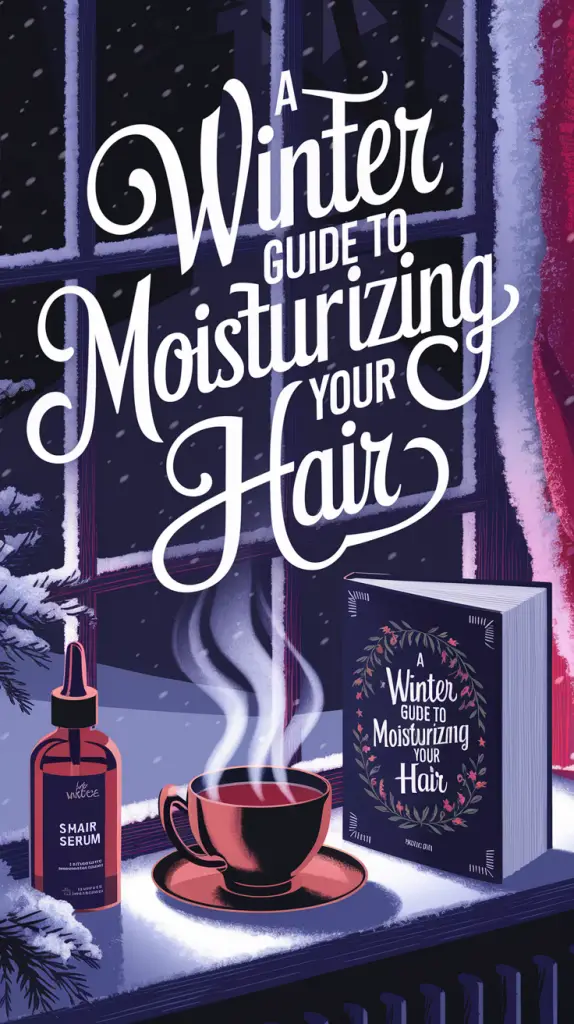A Winter Guide to Moisturizing Your Hair
Maintaining hydrated, healthy hair during winter can feel like an uphill battle. From dry indoor heating to harsh, cold winds, your hair faces numerous challenges. As someone who has navigated these seasonal struggles, I’ve developed a tried-and-true routine to combat dryness and ensure your locks remain soft, shiny, and full of life. Let me guide you through every aspect of winter hair care, step by step.
Why Winter Dries Out Your Hair
The combination of cold outdoor air and heated indoor environments creates a moisture imbalance. The lack of humidity outside strips your hair and scalp of essential hydration, while indoor heating exacerbates the problem. Over time, this leads to dry, brittle strands, static, and even an itchy scalp. Understanding these challenges is crucial to developing a routine that protects your hair.
Hydrate with the Right Products
Choosing the right products is the foundation of a successful winter hair care routine.
Moisturizing Shampoos and Conditioners
Switch to products designed to cleanse while maintaining your hair’s natural oils. Look for these ingredients:
| Ingredient | Benefit |
|---|---|
| Glycerin | Attracts and retains moisture |
| Hyaluronic Acid | Hydrates hair from root to tip |
| Keratin | Strengthens strands against breakage |
Deep Conditioning Treatments
Deep conditioning masks should become a weekly ritual in winter. Opt for formulations with nourishing ingredients like shea butter or honey. For instance, after trying a coconut oil-infused mask last winter, my hair felt instantly softer and less prone to breakage.
Leave-In Conditioners and Serums
To combat static and keep your hair manageable, incorporate leave-in conditioners or lightweight serums. Apply sparingly, focusing on the ends to prevent greasiness.
Lock in Moisture with Natural Oils
Applying natural oils to your hair after washing helps lock in hydration and provides a protective barrier. My personal favorite is argan oil—it leaves my hair shiny without weighing it down.
| Oil | Best for |
|---|---|
| Argan Oil | All hair types, adds shine |
| Jojoba Oil | Lightweight hydration |
| Baobab Oil | Dry, damaged hair |
Protect Your Hair
Avoid Excess Heat Styling
Heat styling tools like curling irons and straighteners dry out your hair further. Use them sparingly, and always apply a heat protectant spray beforehand.
Cover Your Hair
Cold air and wind are enemies of moisture. Wear hats or scarves made with satin or silk linings to minimize friction and protect your hair from the elements.
Rinse with Cold Water
Finish your shower with a cold rinse to seal the cuticles and lock in moisture. This small habit makes a noticeable difference in shine and softness.
Scalp Care: The Foundation of Healthy Hair
Winter often brings an itchy, flaky scalp. A healthy scalp ensures better moisture retention and hair growth.
Scalp Exfoliation
Gentle exfoliation once a week removes product buildup and improves circulation. Mix sugar with your conditioner for an easy DIY scrub.
Scalp Oils
Tea tree oil is perfect for soothing dryness and reducing dandruff. Apply a few drops directly to your scalp and massage gently.
Adjust Your Routine
Reduce Washing Frequency
Over-washing strips your scalp of natural oils. Washing 2-3 times a week is sufficient to keep your hair clean and moisturized.
Use a Humidifier Indoors
Combat the drying effects of indoor heating with a humidifier. By increasing moisture in the air, you’ll notice softer skin and hair.
DIY Winter Hair Remedies
Sometimes, the best treatments are the ones you make at home.
- Avocado Hair Mask: Mash one ripe avocado with olive oil for a hydrating mask. Apply for 20 minutes and rinse thoroughly.
- Aloe Vera Gel: Use aloe vera as a lightweight leave-in conditioner to reduce frizz and add shine.
| DIY Remedy | Key Ingredients | Benefit |
|---|---|---|
| Avocado Mask | Avocado, olive oil | Deep hydration and softness |
| Aloe Vera Gel | Aloe vera | Lightweight hydration |
Nighttime Hair Care
How you treat your hair at night impacts its health.
- Switch to Satin Pillowcases: Satin reduces friction, helping retain moisture and prevent breakage.
- Protective Hairstyles: Loose braids or buns minimize tangling while you sleep.
Diet and Hydration
Hydration isn’t just external—it starts from within.
- Drink Water: Aim for at least 8 glasses a day to keep your hair and scalp hydrated.
- Nutrient-Rich Foods: Incorporate omega-3 fatty acids, zinc, and vitamins A and E into your meals to promote healthy hair.
FAQs
How often should I use a deep conditioner in winter?
Once or twice a week, depending on your hair’s dryness level.
What’s the best way to reduce static from winter hats?
Use a leave-in conditioner and switch to hats with silk or satin linings.
Do I need to wash my hair less in winter?
Yes, washing 2-3 times a week helps retain natural oils and prevent dryness.
Can DIY masks replace store-bought products?
While DIY masks are excellent, combining them with high-quality store-bought products provides the best results.
Is trimming necessary during winter?
Regular trims every 6-8 weeks prevent split ends and keep your hair looking healthy.
Conclusion
Winter hair care doesn’t have to be a battle. By hydrating with the right products, protecting your hair from the elements, and adjusting your routine, you can maintain healthy, moisturized hair all season long. Remember, small changes can lead to big results. Start incorporating these tips today, and your hair will thank you!



